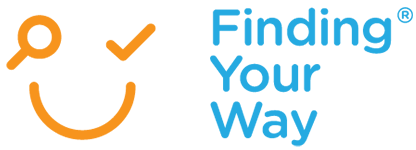Just like learning any new skill, it can take time and practice to feel confident breastfeeding. If you are worried or have any questions about feeding your baby, there are many places you can ask for help. Read more in the getting started section of this page.
Your rights
Breastfeeding in public:
You have the right to feed your baby in any public area in Tasmania. This includes shopping centres, parks, restaurants, and public transport. It is against the law for businesses (such as restaurants, theatres, clubs, and public transport) to refuse to serve you because you are breastfeeding.
Breastfeeding and work:
If you are going back to work after having your baby, you have the right to express your breastmilk at work to give to your baby later. Your employer must give you regular breaks, a private space (not a toilet) for you to express your milk, and somewhere clean for you to store your milk. It is a good idea to talk to your employer before you go on maternity leave and when you come back to work to arrange this.
Bottle-feeding:
Some mothers are unable to breastfeed or choose not to breastfeed, and this is OK too. Baby formulas contain all of the nutrients that your baby needs to be healthy. Some mothers might choose to breastfeed some of the time and bottle-feed some of the time. Your doctor or child health nurse can talk to you to help you decide whether breastfeeding or bottle-feeding is best for you and your baby.
Your doctor or health nurse can also talk to you about what formula is best for your baby, show you how to mix up the formula, and how to properly clean your baby’s bottles.
GET STARTED
Your doctor (or General Practitioner) can answer any questions you have about breastfeeding and help you with any problems.
The Child Health and Parenting Service has Parenting Centres in the North, North-West, and South of Tasmania. Parenting Centres are free and have Child and Family Health Nurses who can give you information and support with feeding your baby. To book an appointment at a Parenting Centre call 1 3 0 0 0 6 4 5 4 4.
If you can’t make it to your doctor or a Parenting Centre, or you have an urgent question, you can call the 24-hour Parenting Line to speak to a Child and Family Health Nurse. You can call at any time. The phone number is 1 3 0 0 8 0 8 1 7 8.
Lactation consultants are health professionals who can support you with breastfeeding. Your doctor might recommend a particular lactation consultant, or you can find a nearby lactation consultant by searching your postcode on the LCAUNZ website.
There is usually a fee to see a lactation consultant, so make sure you ask how much it will cost when you call to book the appointment.
You can call the Breastfeeding Helpline 24 hours a day, 7 days a week, to speak to a breastfeeding counsellor. This is a free service. The Breastfeeding Helpline is run by the Australian Breastfeeding Association. The number is 1 8 0 0 6 8 6 2 6 8.
The Raising Children Australia website has some helpful information about feeding your baby whether by breast or bottle – Newborns breastfeeding & bottle-feeding.
If you believe you have been treated unfairly in a service, at work or in the public seek more information from Equal Opportunity Tasmania.
ACTION STEPS
Here you can find a simple list of the best actions to take if you are interested in this topic:
1 .
Talk to your doctor or midwife about whether breastfeeding or bottle-feeding is right for you and your baby.
2 .
When your baby is born, your doctor or midwife will show you how to breastfeed or how to prepare bottles for your baby.
3 .
Contact your doctor or the Child Health and Parenting Service if you have any questions or worries about feeding your baby.
4 .
If you are going back to work after having your baby, talk to your employer to arrange a space for you to express your breastmilk at work.
